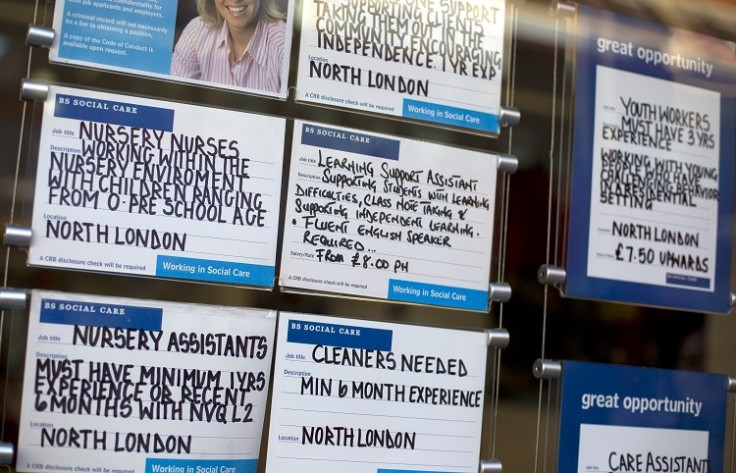Number of people employed on zero-hours contracts rises 20% in a year to almost one million
Office for National Statistics says more than 900,000 people not guaranteed work hours - up 150,000 from 2015.

The number of people employed on zero-hours contracts in the UK has risen by more than 20% since last year, according to official figures. The Office for National Statistics (ONS) said the number of people on employment contracts that do not guarantee a minimum number of hours in their main job between April to June 2016 was 903,000 – representing 2.9% of all people in employment,.
This figure is a rise of more than a fifth (156,000) from the same period last year, when 747,000 were estimated to be on zero-hours contracts.
According to the Labour Force Survey (LFS), people on zero-hours contracts are more likely to be young, part-time, women, or in full-time education when compared with other people in employment and work on average 25 hours a week.
The rise in the figure could be attributed to more people realising they are employed on zero-hours contracts as a result of the term becoming more prominent, but the extent of this reasoning is "not possible to estimate", according to LFS.
Commenting on the figures, Frances O'Grady, general secretary of the TUC union, said: "Zero-hours contracts have become an easy way for bosses to employ staff on the cheap. There is no getting away from the fact that zero-hours workers earn less money and have fewer rights than people with permanent jobs.
"It is very easy for politicians and employers to talk about the 'flexibility' these contracts offer. But they are not the ones living at the sharp end of the labour market.
"If you don't know how much work you will have from one day to the next, paying the bills and arranging things like childcare can be a nightmare. Today's figures are a stark reminder of why we need to create more decent jobs people can actually live on."
Gillian Guy, chief executive of Citizens Advice, said: "People want job security as well as decent pay. The government has taken some important steps to make work pay, including introducing the National Living Wage. The next step is to look at how it can make people's incomes more secure.
"For nine in ten people having a steady income is important and this makes job security as important as the level of people's pay. There are currently 4.5 million people in some form of insecure employment from zero-hours contracts to variable shift patterns or agency work.
"Some people do value these more flexible ways of working as it can help them balance other responsibilities, but it is a different story for those who rely on this type of work as their main income.
"Not knowing how much you can earn from one month to the next can make it hard to pay the bills and keep up with other financial commitments, which can result in debt problems further down the line."
Department for Business, Energy and Industrial Strategy (BEIS) spokesperson said: "As the Prime Minister has made clear, we want to do more to build an economy that works for everyone and to help working people who are struggling to get by.
"Since May last year, the use of exclusivity clauses has been unlawful, meaning that individuals have more control over their lives and can work more hours with another employer if they wish.
"Fewer than 3% of the UK workforce classes itself as being on a zero hours contract in their main job, with almost 70% of those on this type of contract happy with the number of hours they work."
© Copyright IBTimes 2025. All rights reserved.






















